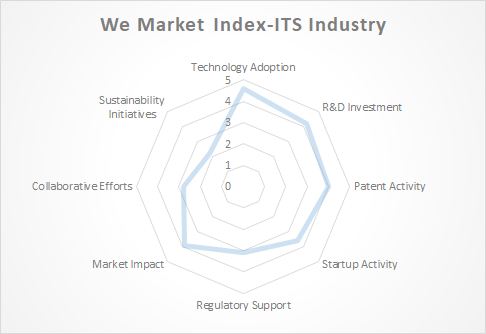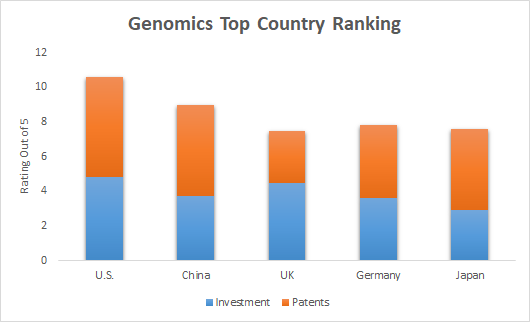Beyond the Genome: Tackling Ethical and Technical Obstacles
The Genomics
Revolution: Investment as the Engine of Innovation
The genomics
industry has experienced profound innovation, revolutionizing healthcare,
agriculture, and scientific research. At its core, genomics focuses on decoding
and understanding the genetic information encoded in DNA, enabling
unprecedented insights into organisms at the molecular level.
One of the most significant innovations in genomics is the advent of high-throughput sequencing technologies, often referred to as next-generation sequencing (NGS). These technologies allow scientists to sequence large quantities of DNA at a rapid pace and relatively low cost compared to previous methods. This capability has accelerated the pace of genomic research and enabled large-scale projects such as the Human Genome Project, which first sequenced the entire human genome.
Source:
We Market Research
Another critical
innovation is the development of genome editing technologies like CRISPR-Cas9.
CRISPR-Cas9 allows precise modifications to DNA sequences, offering
unprecedented potential for gene therapy, agricultural improvement, and
fundamental biological research. It has democratized genetic engineering by
simplifying the process of making targeted changes to genomes across diverse
organisms.
In the
healthcare sector, genomics has paved the way for personalized medicine. By
analyzing an individual's genetic makeup, doctors can tailor treatments and
interventions based on genetic predispositions and responses to therapies. This
approach promises more effective treatments with fewer side effects, marking a
significant shift from one-size-fits-all medicine to precision medicine.
Beyond human
health, genomics has transformed agriculture through precision breeding and
genetically modified organisms (GMOs). Researchers can now identify beneficial
traits in crops and livestock more efficiently, leading to improved yields,
disease resistance, and nutritional value. This has implications for global food
security and sustainability in the face of climate change and population
growth.
In scientific
research, genomics has opened new avenues for understanding biodiversity,
evolutionary processes, and the interactions between organisms and their
environments. By studying genomes across species, researchers can reconstruct
evolutionary histories and explore the genetic basis of complex traits.
Looking forward,
ongoing innovations in genomics, such as single-cell sequencing, epigenomics,
and artificial intelligence applications in genomic data analysis, promise to
further deepen our understanding and applications of genetic information. These
advancements hold the potential to continue driving breakthroughs across
various fields, shaping a future where genomics plays a central role in
addressing global challenges and improving quality of life worldwide.
Genes and
Giants: Conquering Challenges in Genomics
The genomics
industry has experienced tremendous growth and innovation over the past few
decades, driven by advancements in sequencing technologies, bioinformatics, and
applications in personalized medicine. However, several challenges continue to
impede the industry's full potential and widespread adoption. These challenges
span technical, ethical, regulatory, and financial domains.
Technical
Challenges: Despite significant advancements, technical challenges remain in
genomic data generation, analysis, and interpretation. High-throughput
sequencing technologies have dramatically reduced the cost and time required for
genome sequencing, but the sheer volume of data generated presents significant
storage, processing, and analysis challenges.
Handling,
storing, and ensuring the accuracy and reproducibility of massive genomic
datasets require advanced bioinformatics tools and robust computational
infrastructure, which can be expensive and complex to manage. Additionally,
interpreting the vast amount of genomic data to extract clinically relevant
information remains a formidable task. Understanding the functional implications
of genetic variations, particularly non-coding regions, and translating these
insights into actionable clinical decisions necessitates further research and
sophisticated analytical frameworks.
Ethical and
Privacy Concerns: The widespread use of genomic data raises substantial ethical
and privacy issues. Genomic information is inherently sensitive and can reveal
predispositions to various diseases, raising concerns about genetic
discrimination by employers, insurers, and other entities. Ensuring informed
consent, maintaining data confidentiality, and establishing clear guidelines
for data sharing are critical to addressing these concerns.
The ethical
implications of genetic editing technologies, such as CRISPR-Cas9, also pose
significant challenges. While these technologies hold promise for treating
genetic disorders, they also raise questions about the long-term effects and
potential misuse, including germline editing and the creation of "designer
babies."
Regulatory and
Legal Barriers: Navigating the regulatory landscape for genomics-based products
and services is complex and varies significantly across different countries and
regions. Ensuring compliance with diverse regulatory requirements for clinical
trials, genetic testing, and therapeutic interventions can be time-consuming
and costly. Harmonizing international regulatory standards is essential to
facilitate global research collaboration and the commercialization of genomics
innovations. Legal challenges, such as intellectual property disputes over
genomic patents, can also hinder innovation and the development of new
technologies.
Public
Understanding and Trust: Building public understanding and trust in genomics is
essential for its acceptance and integration into healthcare and society.
Misconceptions about genomics and fears related to privacy and ethical concerns
can hinder public acceptance. Effective communication and education strategies
are needed to convey the benefits and limitations of genomics, address ethical
concerns, and engage the public in discussions about the responsible use of
genomic technologies.
Interdisciplinary
Collaboration: Advancing the genomics field requires collaboration across
multiple disciplines, including biology, medicine, computer science, and
ethics. Bridging these diverse fields and fostering effective interdisciplinary
collaboration can be challenging but is essential for addressing the complex
issues in genomics research and application.
Conclusion:
In summary,
while the genomics industry holds immense promise for transforming healthcare
and other sectors, it faces significant challenges that must be addressed to
fully realize its potential. Overcoming these obstacles will require continued
technological innovation, robust ethical and regulatory frameworks, equitable
access strategies, public engagement, and interdisciplinary collaboration.




